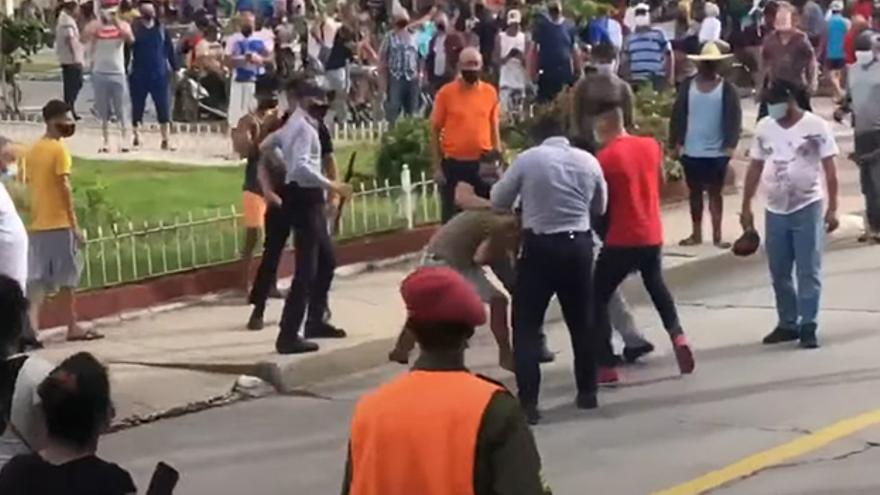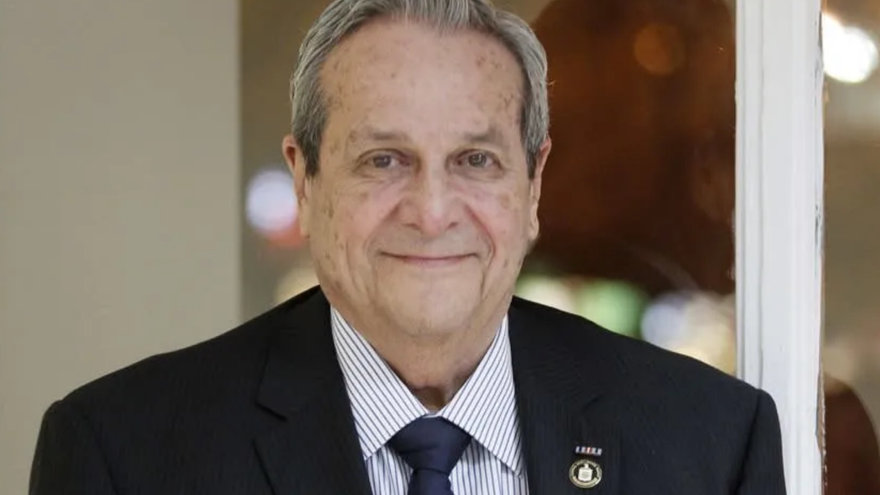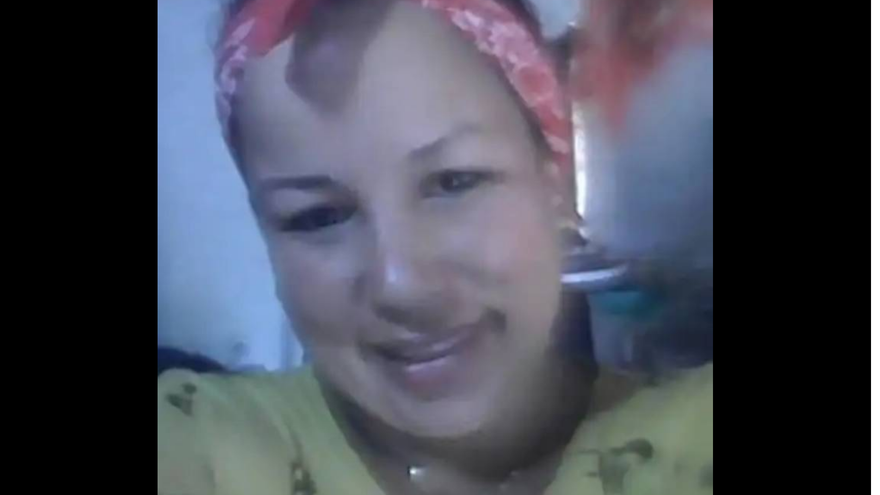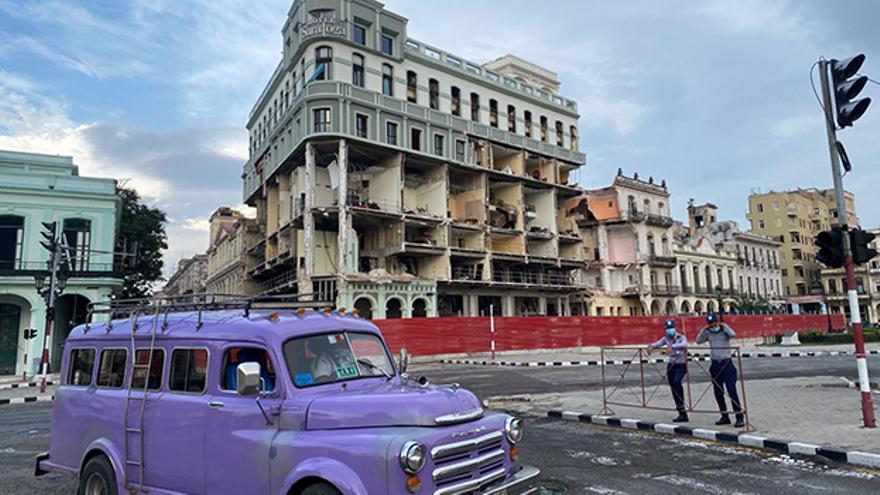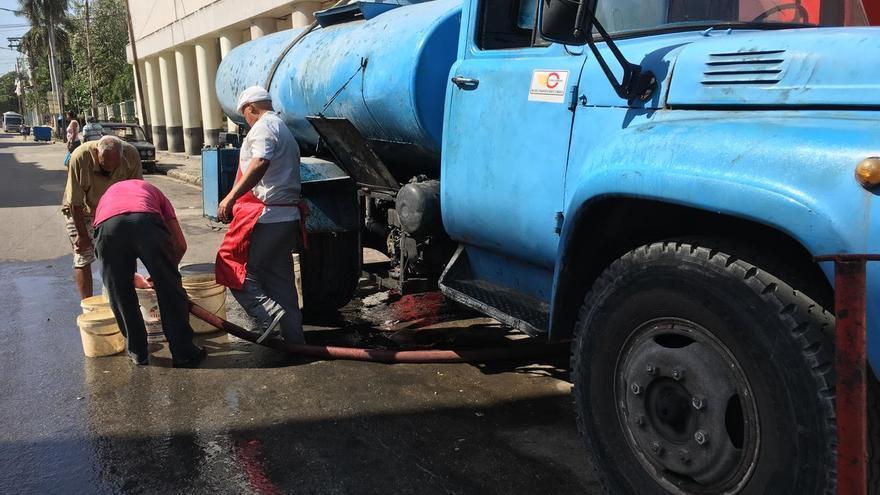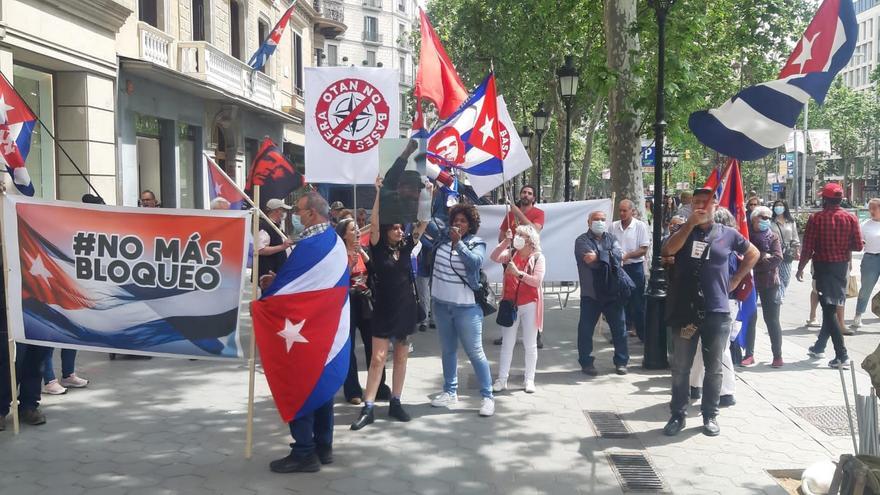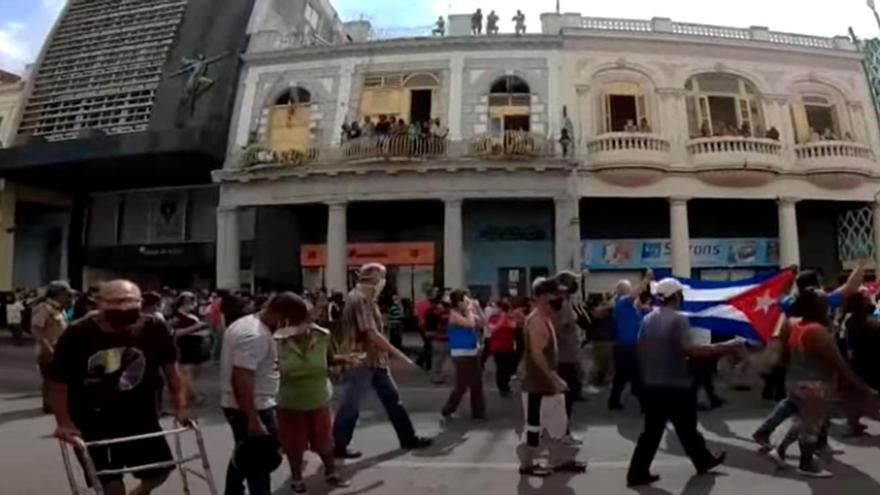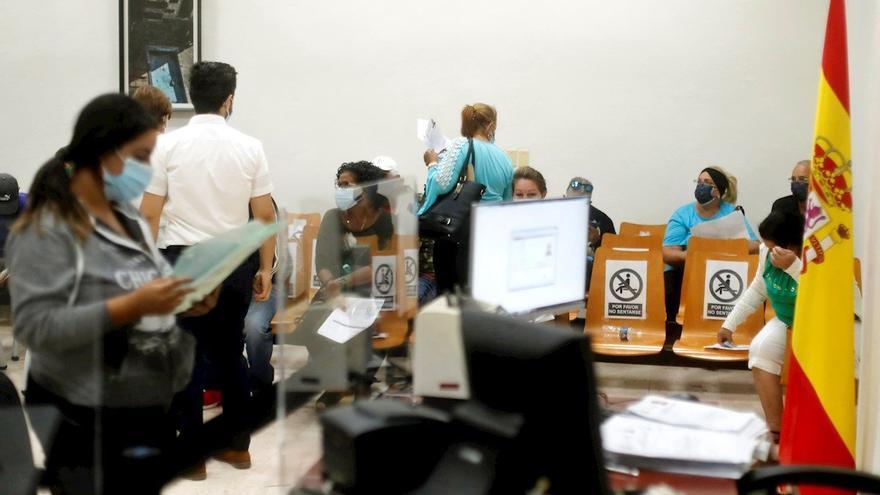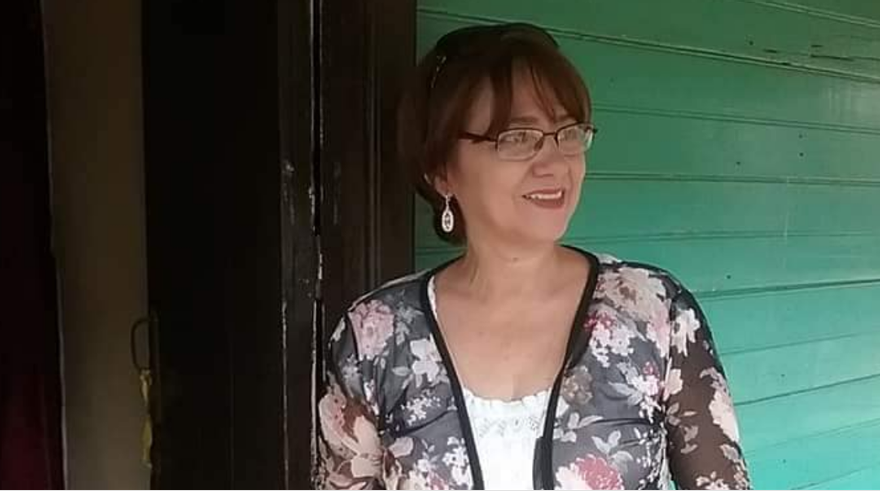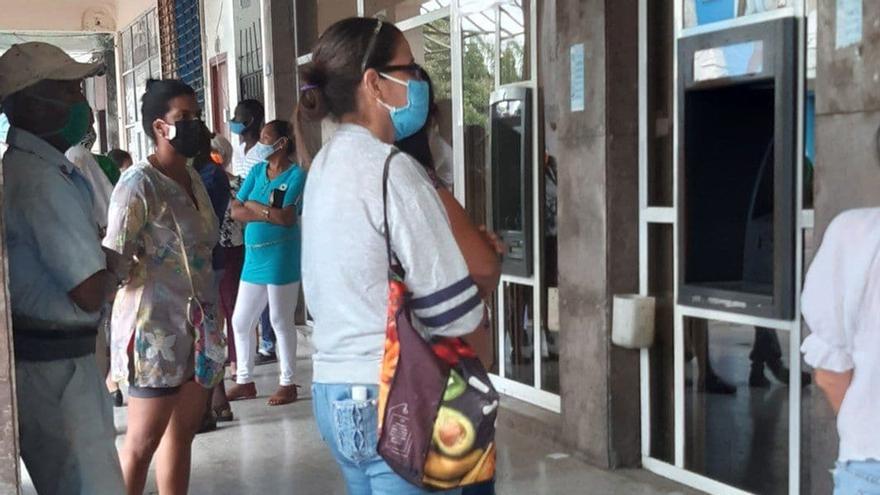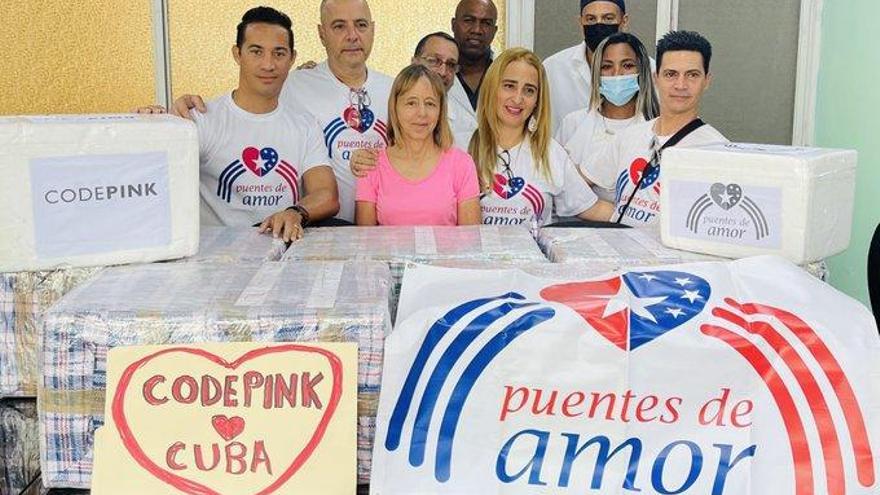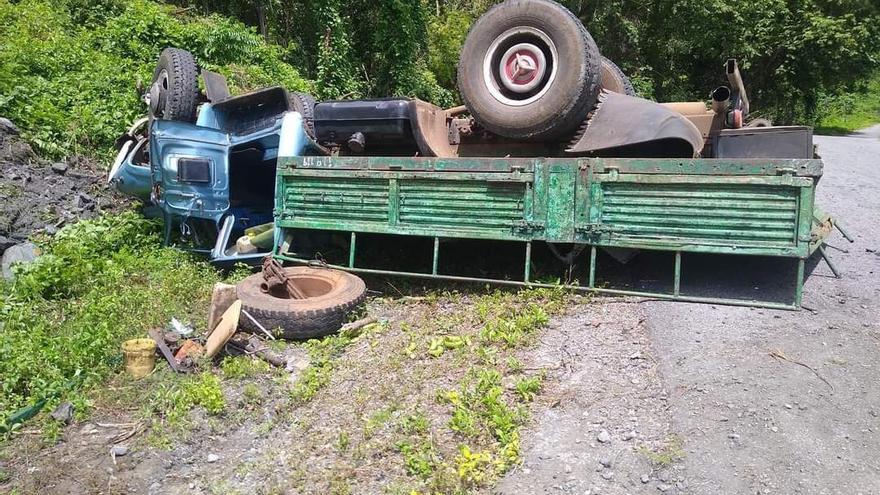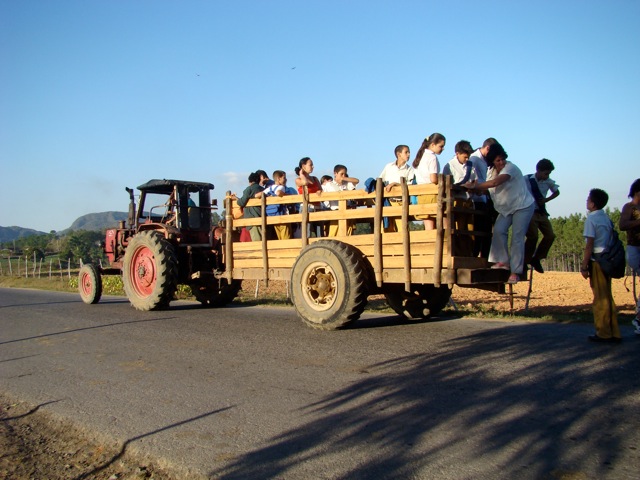“Gentlemen of the Summit, I am writing to you even though I do not know you from Cuba. I want to talk to you about my dad, who is in prison for just singing a song. He has not done anything. Please, can you help me free him? I want him a lot and I miss it,” says Jade de la Caridad Castillo in a video posted on social networks echoed by the singer Yotuel Romero, also co-author of Patria y Vida.
In the video, Osorbo’s daughter implores the solidarity of the participants in the summit that takes place in Los Angeles (USA) to achieve the release of her father, who awaits sentencing after the trial held on May 31, in which the leader of the San Isidro Movement (MSI), the artist Luis Manuel Otero Alcántara, was also tried.
The musician was arrested on May 18, 2021 and from the 31st of that same month he was transferred to the Kilo Cinco y Medio maximum security prison. He is accused of attack, public disorder and the escape of prisoners or detainees for some events that occurred on April 4, in a demonstration on Damas street, in front of the MSI headquarters, when the police tried to arbitrarily arrest him and he refused to get in the patrol car.
Alcántara, for his part, has been in prison since July 11, when he was arrested before participating in the peaceful demonstrations that day. For the first, the Prosecutor’s Office asks for 10 years and for the second, seven, for the crimes of outrage against the symbols of the country, contempt and public disorder. continue reading
Yotuel Romero, Osorbo, El Funky, Descemer Bueno and the duo Gente de Zona won two Latin Grammy Awards for Patria y Vida, the song released in February 2021 and turned into the anthem of the peaceful protests that broke out in Cuba on July 11th (11J).
Jade de la Caridad Castillo is the daughter of El Osorbo and his ex-wife Rosmery Hernández, who was present during the oral hearing of the trial.
Organizations that defend human rights, such as Human Rights Watch and Amnesty International, denounced that the process against the two Cuban artists was full of arbitrariness.
On Wednesday, Cuban singer Yotuel Romero told Efe in Los Angeles that the one not invited to the summit is the “regime” of Miguel Díaz-Canel, but Cuba is invited.
Yotuel, who met with other activists with the US Secretary of State, Antony Blinken, said that he had explained to the US authorities “the will of the Cuban people to be free.”
“We hope that the world will continue helping Cuba to find its happiness,” he said.
Blinken also met this Wednesday with businesspeople, a moment he took advantage of to commit, on behalf of the United States, to train 500,000 general practitioners and specialists over the next five years in the American continent, to strengthen the region’s health system.
“One of the great announcements of this summit, and the private sector is going to have a fundamental role, is that we have committed ourselves in the coming years to train 500,000 health workers, both generalists and specialists,” said the head of US diplomacy.
Blinken assured that this plan, which President Joe Biden will detail during the summit, “will make a huge difference to improve health services if it is deployed efficiently.”
“We need to build a more resilient health system in our region. We need to be better prepared to manage future pandemics. We need to provide better health services,” he claimed.
The plan is to train the 500,000 health workers over the next five years in collaboration with the Pan American Health Organization (PAHO), Biden’s national security adviser, Jake Sullivan, later said during the president’s flight to Los Angeles.
PAHO, which applauded the US initiative in a statement, estimates that the region has a deficit of 600,000 health workers. “Without health personnel there is no resilient health system, no access to care, no pandemic preparedness,” PAHO Director Carissa Etienne said in the statement.
The US government will commit to ending “the acute phase” of the pandemic through improvements in the health system and aid for recovery in the region, a senior administration official said in a call with journalists.
Meanwhile, the invited official delegations have been arriving, including Mexican Foreign Minister Marcelo Ebrard, who asked the United States government to get involved in promoting “another type of relationship in the Americas” based on “mutual respect,” “non- intervention” and the “benefit” of all the countries of the region.
“The organization that we have in the Americas must evolve, I even proposed a moment ago that we take into account what President (Franklin Delano) Roosevelt said about good neighborliness to make a policy based on non-intervention and mutual benefit,” he said.
Ebrard did not consider that the exclusion of Cuba, Nicaragua and Venezuela is “a lack of respect”, but something “very controversial.”
“Several countries mentioned it at the meeting of foreign ministers (today) because it had already been discussed ten years ago, in Cartagena de Indias (Colombia), in 2012, and it was concluded” that Cuba would be invited, which happened in Panama (2015),” he defended.
In this sense, he regretted that in 2022 there is the same discussion although this does not signify “conflict” with the United States. “We respect each other,” he said. However, he believes that “there are things to change” and that it is “feasible” to do so at this IX Summit of the Americas.
In addition to López Obrador, the exclusion of these three countries by the Biden Administration deeply bothered other Latin American leaders who also gave up attending the conference, such as the Bolivian Luis Arce and the Honduran Xiomara Castro. This is the first time that the United States has hosted a Summit of the Americas since the first edition, which was held in Miami in 1994, under the Bill Clinton administration.
This Tuesday, the president of Cuba, Miguel Díaz-Canel, criticized not having been invited and viewed it as a missed opportunity, although he also angrily expressed that he would not have wanted to be in such an event. “We are honored to head the list [of exclusions] along with Nicaragua and Venezuela,” he said.
____________
COLLABORATE WITH OUR WORK: The 14ymedio team is committed to practicing serious journalism that reflects Cuba’s reality in all its depth. Thank you for joining us on this long journey. We invite you to continue supporting us by becoming a member of 14ymedio now. Together we can continue transforming journalism in Cuba.
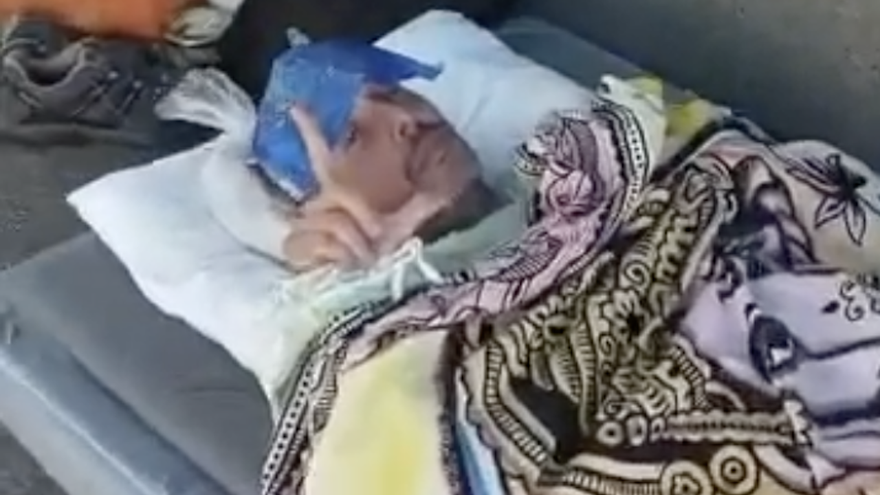
![]() EFE (via 14ymedio), Geneva, 11 July 2022 — On Monday, the Cuban biologist Ariel Ruiz Urquiola, an environmental and LGTBI activist, completed eight days on a hunger strike in front of the headquarters of the UN Office for Human Rights in Geneva, which he is demanding intervene to stop the harassment suffered by his family in Cuba.
EFE (via 14ymedio), Geneva, 11 July 2022 — On Monday, the Cuban biologist Ariel Ruiz Urquiola, an environmental and LGTBI activist, completed eight days on a hunger strike in front of the headquarters of the UN Office for Human Rights in Geneva, which he is demanding intervene to stop the harassment suffered by his family in Cuba.
